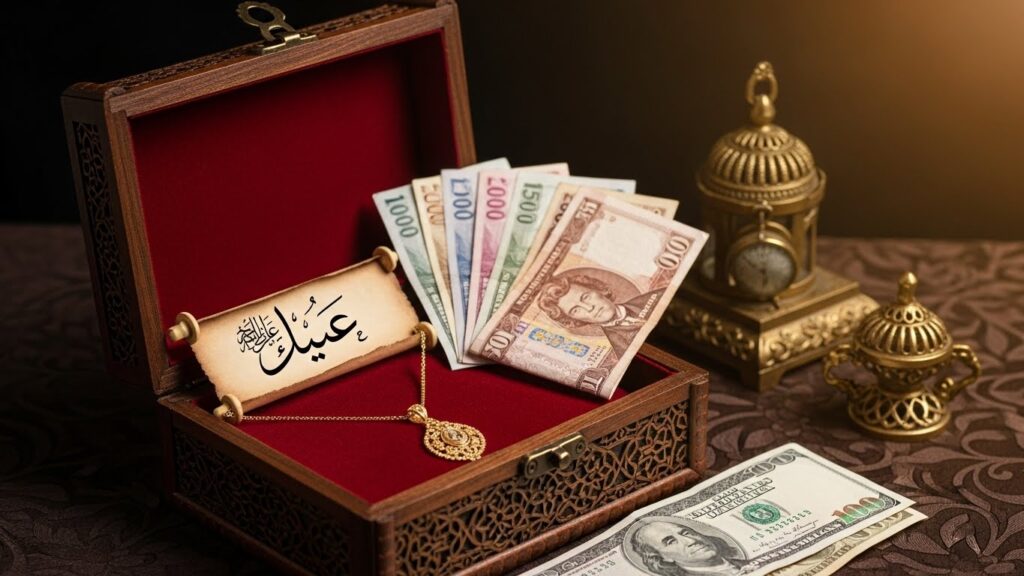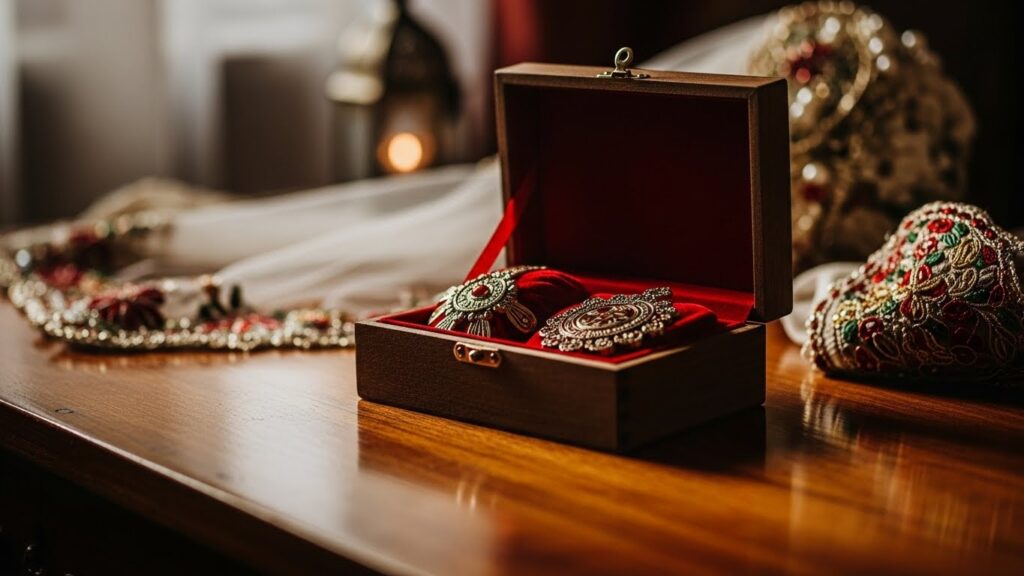Learn what mehr means in Islam, its purpose, types, and minimum amount. Understand how mehr is different from dowry and why it plays a key role in a Muslim marriage contract.
Introduction: What Is Mehr in Islam?
Marriage in Islam is not just an emotional bond. it is also a responsibility built on respect and fairness. One beautiful example of this is Mehr. Many people hear this word at the time of nikah but not everyone truly understands its meaning. So, what is Mehr in Islam and why is it so important for a Muslim marriage? Let’s explain it in a simple and easy way.
Mehr is not a favor or charity. It is the bride’s right, given to her as a sign of honor, respect and security. It can be in the form of money, gold, property, or even something symbolic and meaningful, depending on the agreement between the couple. What matters most is that it is agreed upon and willingly given.
This gift is clearly mentioned in the Quran and forms an essential part of the Islamic marriage contract (nikkah). Without mehr, the marriage contract is considered incomplete. It shows that Islam values the dignity and well being of the woman, giving her financial rights from the very start of her marriage.

Mehr Meaning and Purpose in Islam
To truly understand mehr meaning in Islam we need to look at both its literal and religious significance. In Arabic, mehr (also spelled mahr) refers to a gift or payment that is made by the groom to the bride at the time of marriage. This gift is not a price for the woman but a symbolic and practical gesture of love, responsibility and commitment.
In Islamic teachings, mehr is a compulsory part of the marriage contract. It must be agreed upon by both the bride and groom before the nikkah (marriage ceremony) takes place. This ensures that the bride begins her new life with a sense of financial security and dignity. She has the full right to decide how it will be given and in what form.
The purpose of mehr goes far beyond material value. It reflects the man’s intention to honor his wife, support her and protect her rights. It also reminds both partners that marriage is a serious commitment based on mutual respect and trust.
Some people confuse mehr with dowry but it is important to clarify that Islamic dowry is not something taken from the bride’s family. Instead, what is mehr in Islam is a responsibility placed on the groom. This system protects women from exploitation and affirms their value in the relationship.
Is Mehr the Same as Dowry in Islam?
A common misunderstanding in many cultures is confusing mehr with dowry. Although both terms relate to marriage they are very different in meaning and purpose.
In Islam, mehr is a gift that the groom gives to the bride. It is her personal right agreed upon before the marriage contract and is a symbol of respect, responsibility and commitment. The bride can use this gift however she wishes, and it belongs solely to her.
On the other hand, dowry in some cultural practices refers to the money, property or gifts that the bride’s family is expected to give to the groom or his family. This is often done out of social pressure, and in many cases, it causes stress or financial hardship for the bride’s side.
Islam does not support or require dowry from the bride’s family. The concept of Islamic dowry, properly understood, is the exact opposite. The financial responsibility in an Islamic marriage falls on the groom, not the bride or her family.
Understanding this difference is important. Dowry in Islam is not a burden placed on women or their families. Instead, Islamic dowry, or mehr, is a way to protect the dignity and rights of the woman giving her value and security from the very beginning of her marriage.
What Is Haq Mehr in Islam?
To understand what is haq mehr in Islam, it helps to know that haq means “right” and mehr refers to the gift or payment a groom gives to his bride at the time of marriage. So, haq mehr is the woman’s rightful share in the marriage agreement. It is a confirmed obligation on the groom and one of the conditions that makes the nikah (Islamic marriage contract) valid.
Haq mehr is not optional. It must be clearly discussed and agreed upon by both parties before the nikah is performed. The bride has the right to suggest the amount and the groom must accept it willingly. This agreement is then recorded in the marriage contract and becomes legally and religiously binding.
There are two main types of haq mehr:
- Immediate mehr (Mu’ajjal): This is paid at the time of the nikah or shortly after.
- Deferred mehr (Mu’akhkhar): This is promised to be paid later often at the time of divorce or the husband’s death.
The amount or form of haq mehr can vary depending on what the bride and groom agree upon. It could be money, gold, property or even something symbolic as long as both agree and it holds value.
Knowing what is haq mehr in Islam helps Muslims honor marriage as a respectful and balanced union. It ensures that the woman enters her new life with a sense of dignity, value, and financial security.
What Is the Minimum Haq Mehr in Islam?
Many people wonder what is the minimum haq mehr in Islam especially when planning for marriage. Islam does not fix a specific amount for mehr but it does emphasize that it should be something valuable and reasonable according to the groom’s financial ability.
The Prophet Muhammad ﷺ encouraged simplicity in marriage and never placed a heavy burden on the groom. In fact, there are authentic examples from his life where mehr was a small yet meaningful gift. In one case, a man had no money so he offered to teach the bride a portion of the Quran as her mehr and the Prophet ﷺ approved it. One another case an iron ring was accepted as mehr.
This shows that there is no strict minimum in terms of currency or material value. What matters most is the intention, agreement and mutual understanding between the bride and groom. However, the mehr should not be so small that it becomes disrespectful nor should it be so large that it causes financial pressure.
So, when asking what is the minimum haq mehr in Islam, the answer is, whatever is considered fair, respectful, and within the groom’s means as long as the bride is pleased with it.
Types of Mehr
In Islamic teachings mehr is not just a tradition but a legal right of the bride. There are different types of mehr, depending on how and when it is given. Understanding these types helps couples agree on a fair and suitable arrangement during the nikah.
Read Also: Rights of Husband and Wife in Islam
Here are the main types of mehr:
1. Mu’ajjal (Prompt Mehr)
This is mehr that is paid immediately at the time of the nikah or shortly after. It gives the bride financial support from the beginning of the marriage. In many cases, the full amount is given before the marriage is completed.
2. Mu’akhkhar (Deferred Mehr)
This is agreed upon at the time of marriage but paid later. It can be delayed until a set date or paid in case of divorce or the husband death. Deferred mehr acts as a form of security and is still a debt upon the husband until it is fulfilled.
3. Specified Mehr (Mehr Musamma)
This is when the exact amount or form of mehr is clearly decided and agreed upon before the marriage. Both sides know what is being given whether it is money, gold, or any other valuable item.
4. Unspecified Mehr (Mehr al-Mithl)
If mehr is not mentioned at the time of nikah the bride is still entitled to a fair amount based on what similar women in her family or society have received. This ensures her rights are protected even if the amount was not agreed on in advance.
These types show that Islam is flexible and fair when it comes to mehr in the Muslim marriage contract. It is designed to support the bride and ensure she begins her new life with respect and dignity.
How Is Mehr Decided in a Muslim Marriage?
Deciding the amount of mehr is an important step in a Muslim marriage. It should be based on honesty mutual respect and clear communication between the bride and groom. Islam gives both parties the freedom to agree on what is fair and suitable according to their financial situation and cultural norms.
Usually, the bride or her guardian proposes an amount or type of mehr. The groom then agrees to it if he is capable of fulfilling it. In some cases, the couple decides together with input from both families. The main goal is to make sure the bride is comfortable with what she is receiving and the groom is able to give it without hardship.
The Prophet Muhammad ﷺ encouraged keeping mehr simple and affordable. He taught that the best marriages are those that are easy and not based on large financial demands. This shows that the true value of mehr lies in the intention behind it, not the size of the gift.
It is also important that the agreed mehr is clearly written in the marriage contract. This avoids confusion in the future and ensures the bride’s rights are protected.

Quranic Ayah About Mehr in Islam
Allah ﷻ clearly mentions Mehr in the Qur’an and gives a direct command about it. Allah says:
وَآتُوا النِّسَاءَ صَدُقَاتِهِنَّ نِحْلَةً ۚ
(Surah An-Nisa, 4:4)
Translation:
“And give women their bridal gift (Mehr) willingly and with a good heart.”
Through this ayah, Allah commands men to give Mehr at the time of marriage. Islam does not treat Mehr as a cultural formality. Instead, it recognizes Mehr as a woman’s guaranteed right. When a husband gives Mehr he accepts his responsibility and honors his wife.
The Quran also teaches that a man must give Mehr happily and sincerely, without delay or pressure. A wife fully owns her Mehr and decides how to use it. No one has the right to take it from her.
Conclusion: The Wisdom Behind Mehr in Islam
Mehr is not just a cultural formality. It is a meaningful and protective part of an Islamic marriage. When we understand what is mehr in Islam, we see how beautifully Islam honors women and encourages fairness between spouses.
Mehr gives the bride financial security and respect from the very start of her marriage. It shows the groom’s commitment and willingness to take responsibility. It also acts as a reminder that marriage in Islam is based on kindness, understanding and mutual rights.
Whether it is a simple gift or a larger amount, mehr should always be given with sincerity. It is not about showing wealth but about building a marriage with the right intentions. Islam reminds us that the best marriages are those built on simplicity, love and faith not financial pressure.
By following the teachings of Islam, couples can start their journey with barakah (blessings) and trust. Understanding the purpose of Islamic dowry, knowing what is haq mehr, and agreeing on a fair amount are all ways to strengthen the bond between husband and wife.
Read Also: Dua For Getting A Good Life Partner
